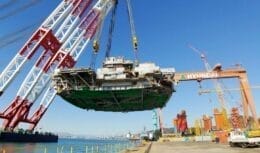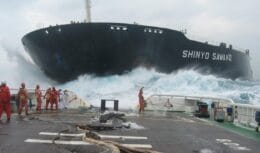
Having trouble finding a job? In this article I will list the main mistakes you make when applying in this sector
A career in the oil and gas industry, especially in the offshore sector, is a professional objective that many people aspire to or even dream of, either because of the great above-average salaries (many are even rewarded with the 14th salary) and systems of leave different from a worker during business hours on land. But in this path of anxiety, many make mistakes that compromise their entry into the market or take longer than they need to enter this market segment, aggravated by the crisis that has been plaguing the sector in the country since 2015 to date (2017). Below, I will list the 3 mistakes you are likely to make when trying to enter the offshore market:
Do not take courses different from your area in an unrestrained way
Many beginner technicians and practical professionals live under a philosophy that the more courses, the faster the entry into the job market will be, which is still untrue. However, in the offshore market, everything that is done is very restricted and requires specific qualification, for example: A Electrical technician, with welder training and cook experience, in other words, you have everything and nothing at the same time! Companies in this sector only hire qualified professionals within the market niche. If you are Mechanic, then take courses in industrial design, autocad 2d and 3d, interpretation of technical drawings. now go away electrician, do NR-10, technician, reading and interpretation of diagrams, electrical controls. If you want to work in the field of maritime or offshore hospitality, take SENAI/SENAC courses and so on. In short, if you want to work in the oil and gas business, take specific courses within a specific area.
Do not do Salvage and HUET without previous professional experience unless you have money to spare
You must be wondering if I'm crazy, right? If companies require these skills to embark, how will we enter the job market without them? It happens, dear reader, that these courses have an expiration date and are heartbreakingly expensive! The CBSP (salvage) and the HUET are valid for 5 years each. Let's assume that you have finished completing your professional, technical or higher course in the area and then think: "Now what if you throw the boarding courses on top that everything is fine". The problem is that every day, companies are more discerning, they are only taking professionals with experience (and look there) and there is not much demand for offshore activities due to the crisis. If you have onshore experience in the area before submitting to a boarding vacancy, it will be easier for you to get a job in the sector and get a financial return on the courses you have taken, otherwise your courses will expire and your invested money will be thrown away. literally, unless you have the famous “FISH” (someone who directs you to the head of the company).
[quads id = 4]
Do not send resumes outside your specific area, poorly formatted and with Portuguese errors
This is the champion. Many companies come to me complaining that many people are sending resumes different from their specific areas of the advertised vacancies, this is a fatal mistake! If you continue with this practice, your emails will be blocked on the company's servers and when an opportunity comes out that is really in your area, you will be left behind.
Formatting a resume is very simple: In the 1st section, put your personal data of name, address and contact. In the 2nd, put a short summary of what you know how to do and your experiences in the application in question. In the 3rd, put your experiences and how many years you have in each one.
I've seen with my own eyes HR professionals tear up resumes and throw them in the trash because of grammatical errors. Particularly I think this is horrible, because many do not consider typos and judge the good professional only by writing. That's at their discretion and there's not much we can do other than conform to the parameters. So friends, pay attention to this. Here is a blank template specific to this Catho segment:
Do you have any questions or suggestions about this topic? Comment below and leave your opinions. Remembering that you can enjoy our page on Facebook at any time and stay on top of industry news.












